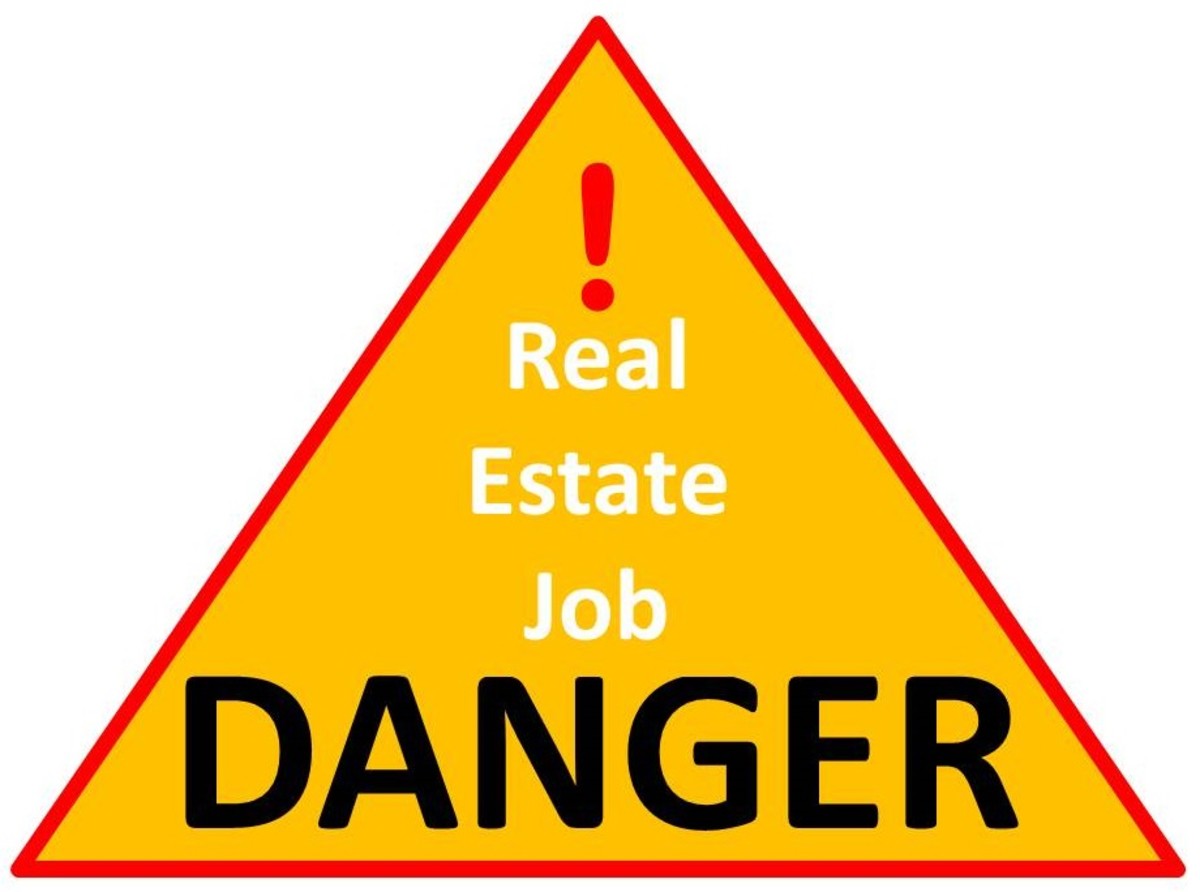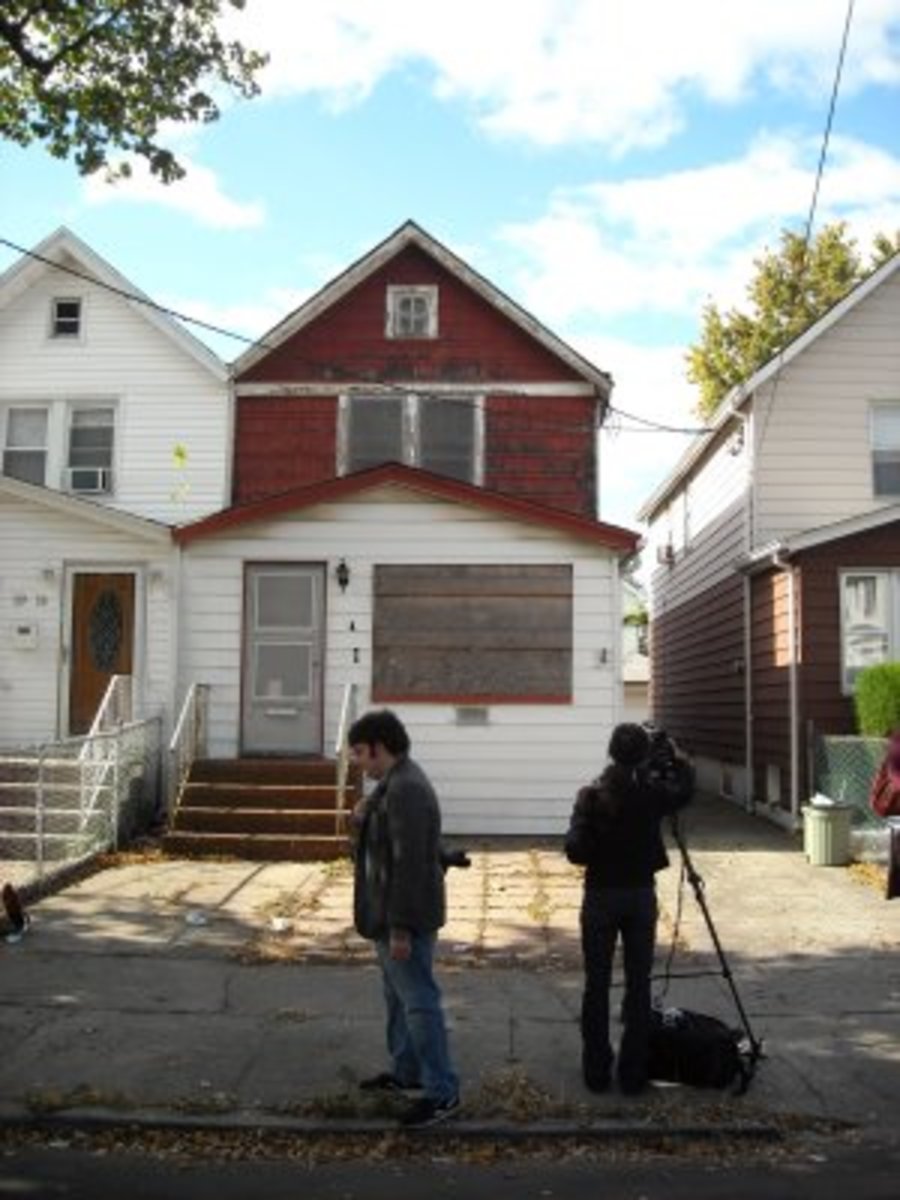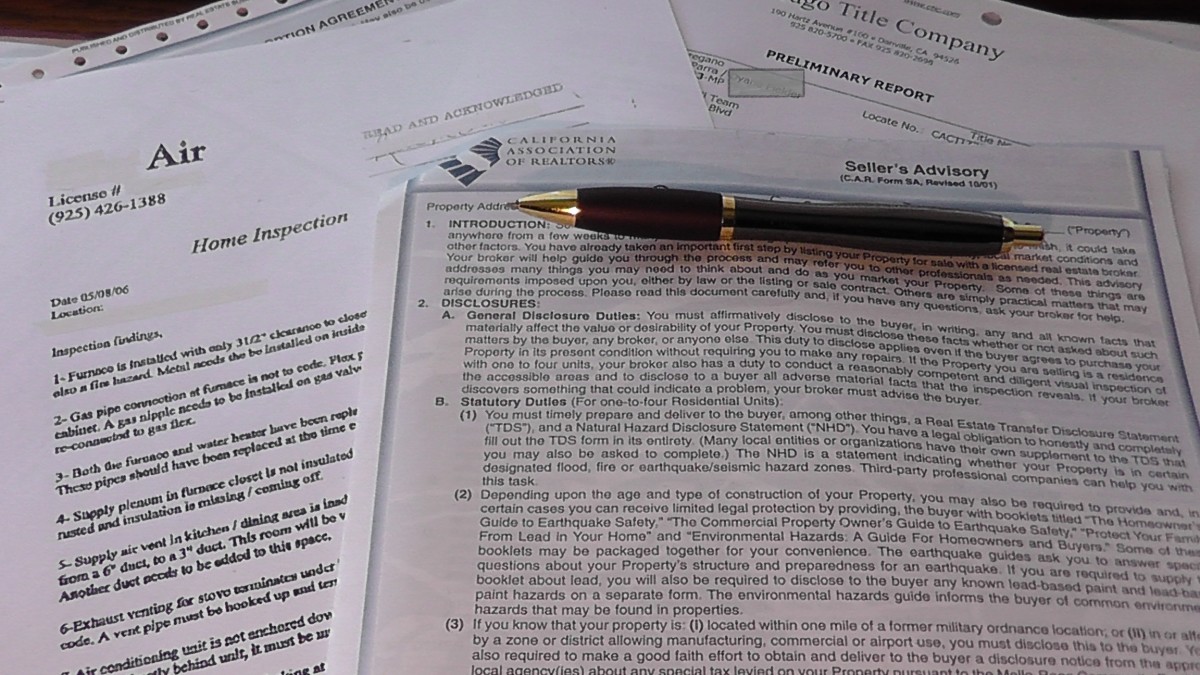12 Common Mistakes When Selling FSBO
Introduction
What are some of the mistakes you could make when trying to sell your own home? What can you do to avoid common FSBO mistakes that could literally cost you thousands of dollars, whether it is in the form of a lower offer for your home or having it sit on the market for months?
Not Making the Property Marketable
When you hire a real estate agent, he or she will give you advice on making the property perfect for the market. They may give you the names of house staging teams or cleaning crews to make the home ready for potential buyers.
Since many home owners go the for sale by owner route to save money, they often skip the expenses of making the home ready for showing. They may neglect minor repairs that hurt the value of the property, like neglecting to clean finger prints and marks off the wall or repair cracks in the drywall. Yet this hurts them because a property that appears to be in poor repair will not bring as much money as a clean, presentable one - and the difference could be more than it would have cost to clean it up or bring in a realtor who would pretty it up to get the greatest commission possible.
You also need to pick up the home and make it look good between showings. If the house looks lived in or messy, some buyers will not want to consider it any further, while others will treat your home like a bargain.

Not Doing Market Research
Owners selling a property are sometimes desperate to get out of the property. Sale prices may be enough to cover the outstanding mortgage, liens and moving costs. Conversely, many owners selling their own homes fail to do comparable market research.
They set a price based on their opinions or desired selling price, not what the market will bear. Those who set too high of a price will sit and wait as prospective buyers look at other properties. For those who are financially strapped, making extra payments while waiting for an offer is a financial strain that could be avoided.
If you don't want to pay a real estate broker to run comparable housing price reports, try searching the local tax appraisal district's website to find out how much surrounding properties have brought in the past year.
Neglecting the Budget for the Help You Need to Sell It
Selling your own home allows you to avoid paying 2.5% of the sale price to your agent. However, you, as the home seller, are still required to pay the home buyer's real estate agent’s commission. Include this in your sale price or the money you've set aside to cover closing costs.
You should also have a real estate attorney on your side. While an attorney may cost a few hundred dollars, the lawyer can save you from making major mistakes in the contract to sell your home, and these mistakes could cost you thousands if not tens of thousands of dollars.
Not Arranging an Inspection before Showing the Property
Home owners need to have an inspection done before they offer the property for sale. An independent inspection carries more weight with buyers than an owner minimizing visible problems who will be suspected of hiding major ones. Home owners may not know the answers to questions about wiring, the last termite check and the expected remaining life of the HVAC equipment.
Arrange an inspection of the property with an independent home inspector. The inspector will fill out the standard check list and notify the home owner of needed repairs. Home owners can choose to make the repairs, thus improving the property's value, or offer the house as is. Offering the house as-is will drive away many buyers, but this offer along with a list of identified repairs will show that the home owner is honest regarding its condition.

Forgetting About the Pets
Don’t forget about your pets when you are trying to sell your home. Dogs need to be put in a crate inside of the home or caged outside before anyone comes onto the property. If the first impression sets the tone for the tour, being frightened by a dog trying to buy them may drive away perfectly good shoppers. Remember to clean up animal messes outside before anyone shows up at the front door. And make sure that you’ve removed as much pet dander as possible. Not only do some people not like cats, they are also allergic to it. If they think they are allergic to the home, they’ll look for a more compatible property to live in.
If you have set up a lock box for the buyer’s real estate agent to use when visiting the property when you are not there, consider boarding the animal somewhere else to avoid conflict between visitors and pets.
Furthermore, at no time should anyone smell the effects of your pets on the home. There should not be an odor from the litter box when someone steps in the bathroom or cat urine from a corner in the living room. The cost of quality cleaning chemicals is a small investment in the sale price of your home.
Not Advertising in the Right Places
You need to list the property on the MLS, since this is the first place many buyers look. Except for neighbors and investors looking for good deals, most home buyers won't look farther than the MLS. So pay the fee of a few hundred dollars to list the property on the MLS. You'll put your home in the listings along with the properties shown by realtors. This will bring more potential buyers and increase the odds of a good offer. You can put ads for the property in your local paper or online forum as well, but the MLS listing should be done first.
Or use real estate listing sites outside of the MLS.
Putting a for sale by owner sign on the front yard is no longer good enough if you want to sell your home quickly for a reasonable price. In fact, many real estate agents avoid FSBO signs and won't show those properties to their clients. This will drive away many likely buyers, so skip the “for sale by owner sign” in the yard.
Craigslist is a free way to list a property, but the people it brings in may not be the serious home buyers you want (or offer to buy it at a wholesale rate).
Know the Legal Terms before Meeting Buyers
Do you know the difference between taking over the payments for a property and actually selling it? What is someone suggesting when they ask to lease to own instead of purchasing the property? Do you know what escrow is when someone asks you about it? While most home owners are not real estate experts, get familiar with the most commonly used real estate legal terms so that you understand them when they come up during discussions with buyers.
Be familiar with the rights that come with the property, like oil and gas rights or water rights, as well as easements applied to the property. Don’t promise to seller financing unless you know what it is and are willing to go through with it.
Choose Your Words Carefully
Another mistake home owners make is relying on emotional words instead of pictures when promoting the house. Take pictures of the inside of the home after it has been cleaned, repaired and staged. Show the living rooms, bed rooms and kitchen. Post pictures of the back yard as well as the front yard as long as they are well kept. However, do not post beautiful old pictures of your home that cause buyers to walk away when they see the home in its current condition, far below their expectations.
If a picture is worth a thousand words, half a dozen pictures will do more to advertise your home than throwing in more vague adjectives like "sturdy", "spacious", “modern".
Studies have found that the credibility of an advertisement drops with the number of exclamation points after an adjective or the end of a sentence. If you are struggling to describe the home itself, describe the school district it is in. Tell buyers how close you are to major employers, nearby public transit hubs, that the property is ready to handle pets or handicap accessible. “Swing-set included” is more valuable than “Look at this!!!!” in a real estate ad. Avoid filler adjectives such as “great”, “super”, “excellent” and “amazing”. Nor should you use terms like “small” or “fixer-upper”; you’ll drive away many potential buyers.
Not Answering Calls and Questions Promptly
When someone is looking for a new home, they will be researching many different properties simultaneously. Your home may be your single largest asset, but home buyers have dozens if not hundreds to choose from.
If a potential buyer calls you to ask how close the property is to an elementary school or how busy the nearby thoroughfare is, they want the answer immediately. Otherwise, they'll move on to the next prospect on the list. If you cannot answer a call from a buyer immediately, return the call that day. If you wait until the weekend to respond to buyers, you've already lost the sale.
Not Showing the Home Enough
If you've put the property on the MLS or other websites, you should start receiving a string of calls by potential buyers. The next step is more inconvenient but even more important.
You need to be available to show the house to potential buyers. And you need to be available when buyers are looking. For example, you need to be available to show the home at least one evening a week as well as Saturday and Sunday. Don't make buyers wait until the next weekend to look at the house; they may have toured four others and made an offer before they could make it to your limited schedule.
Interfering with the Showing
When the buyer's real estate agent comes, don't interfere with the showing. Do have copies of the independent inspection and information about the property, in case there are questions. Keep your children out of sight when buyers tour the property. Arranging viewings when the children are at school or sending them to a neighbor’s home is even better.
Wasting Time on Those Who Cannot Buy
Ideally, you'll have several people who want to tour the property and a few offers. You can save yourself time and hassle by requiring someone to have a pre-qualification letter from their bank or proof that they can pay cash for the property. If someone is not pre-qualified for a home mortgage for their offer, they cannot buy the home at that price. Pre-approved is not pre-qualified.
If you take the home off the market while waiting for someone who is pre-approved to complete the deal, you'll wait a few weeks for them to get qualified for a mortgage and finish paperwork with the bank before they can pay you for the property. In that time, you'll have to continue making mortgage payments and miss buyers who are qualified to pay your asking price. You can require earnest money up front when accepting an offer; this will drive away unqualified buyers and those who are not really ready to buy.







